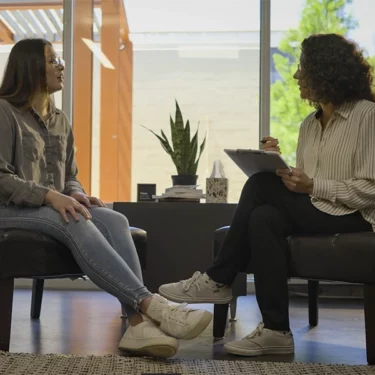Certified Community Behavioral Health Clinics (CCBHCs) are transforming access to mental health and substance use care by expanding services, deepening local partnerships and building trust.
This progress is especially meaningful in rural areas, where challenges like long travel distances, provider shortages, stigma and other barriers often stand in the way of care.
But what does this transformation actually look like in practice?
We asked two behavioral health care leaders from Missouri and Kansas in “Beyond Access: CCBHCs and the Future of Rural Behavioral Health,” our July 23 Wellbeing Wednesdays episode.
Here are some key takeaways from our conversation with Lauren Moyer, Compass Health Network’s executive vice president of clinical innovation, and Kyle Kessler, executive director, Association of Community Mental Health Centers of Kansas:
- Sustainable funding drives growth: CCBHCs use a flexible, reliable payment model that allows clinics to grow with community needs. This can mean expanding services, hiring staff, embedding providers in schools and police departments, and delivering timely care.
- 24/7 crisis services are now the norm: Around-the-clock services — including mobile crisis teams and walk-in care — reduce ER visits, ease the burden on law enforcement and ensure immediate help is always available.
- Veterans get tailored, stigma-free support: CCBHCs prioritize outreach and offer trauma-informed care and peer support for those who have served.
- Meeting farmers where they are: Adapting to the realities of rural life, CCBHCs deliver care at grain elevators, on remote farms and through virtual platforms to reach agricultural workers under immense stress.
- Trust is the foundation: In rural areas, relationships are everything. Partnerships with emergency medical services, schools, law enforcement, churches and civic groups earn trust that makes care possible.
Through community-rooted solutions, CCBHCs continue to transform behavioral health care access, ensuring no one is too far or too isolated to receive help.
With nearly 500 CCBHCs now operating nationwide, the momentum is real, and these lessons from Missouri and Kansas offer a powerful road map for what’s possible.
Watch the full episode above! Want to help expand this model nationwide? Discover how.



